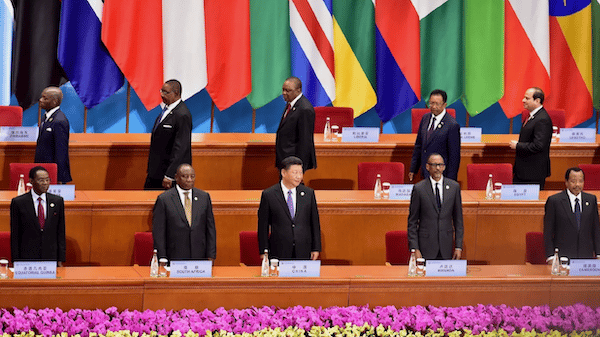There are no products in your shopping cart.
| 0 Items | £0.00 |


CHINA is planning to forgive 23 interest-free loans to 17 African countries and redirect $10bn of its International Monetary Fund (IMF) reserves to nations across the continent as part of its programme to come to the assistance of its struggling trade partners.
Currently the largest government creditor to emerging economies, China has established itself as Africa’s largest bilateral lender, bankrolling key infrastructure projects on the continent as well as giving out loans. However, in the wake of the coronavirus pandemic and the subsequent economic fallout, many African nations have found it hard to repay their Chinese debts.
Announcing the cancellations at a meeting of the Forum on China-Africa Cooperation, Wang Yi, China's foreign minister, said the country will also redirect $10bn of its IMF funds to several nations on the continent. He revealed these details at the coordinator’s meeting on the implementation of the follow-up actions of the eighth ministerial conference of the Forum on China-Africa Cooperation
Mr Wang added: “China will waive the 23 interest-free loans for 17 African countries that had matured by the end of 2021. We will also continue to increase imports from Africa, support the greater development of Africa’s agricultural and manufacturing sectors, and expand cooperation in emerging industries such as the digital economy, and health, green and low-carbon sectors.
“What Africa wishes for is a favourable and amicable cooperation environment, not the zero-sum cold war mentality. So far this year, China has signed an exchange of letters with 12 African countries on zero tariffs for 98% of their export items to China.”
It’s not clear if Nigeria will be included among the benefitting countries but statistics published by the Debt Management Office showed that as of March 31, 2020, Nigeria's total borrowing from China totalled $3.121bn. This amount represents only 3.94% of Nigeria’s total public debt of $79.303bn as at March 31, 2020.
Similarly, in terms of external sources of funds, loans from China , the government said, accounted for 11.28% of the external debt stock of $27.67bn. Since 2000, Beijing has announced multiple rounds of debt forgiveness of interest-free loans to African countries, cancelling at least $3.4bn of debt through 2019, according to a study published by Johns Hopkins University School of Advanced International Studies.
Most of China's cancelled debt was limited to mature, interest-free foreign aid loans, with Zambia receiving the most cancellations over that period. However, the vast majority of China’s recent lending in Africa such as concessional loans and commercial loans have never been considered for cancellation, although some of it has been restructured.
Surging inflation has triggered a wave of interest-rate increases by central banks worldwide, including the US Federal Reserve, which drives up the costs of sovereign loan repayments. Meanwhile, developing nations have amassed a quarter of a trillion dollar pile of distressed debt that threatens to create a historic cascade of defaults by economies that were struggling even before the Covid-19 pandemic.
Beijing, which has come under criticism from the West for its lending practices to poorer nations, accounts for almost 40% of the bilateral and private-creditor debt that the world’s poorest countries need to service this year, according to the World Bank. It has, however, helped forge recent debt-relief agreements, participating in the Group of 20 suspension of repayments during the pandemic.